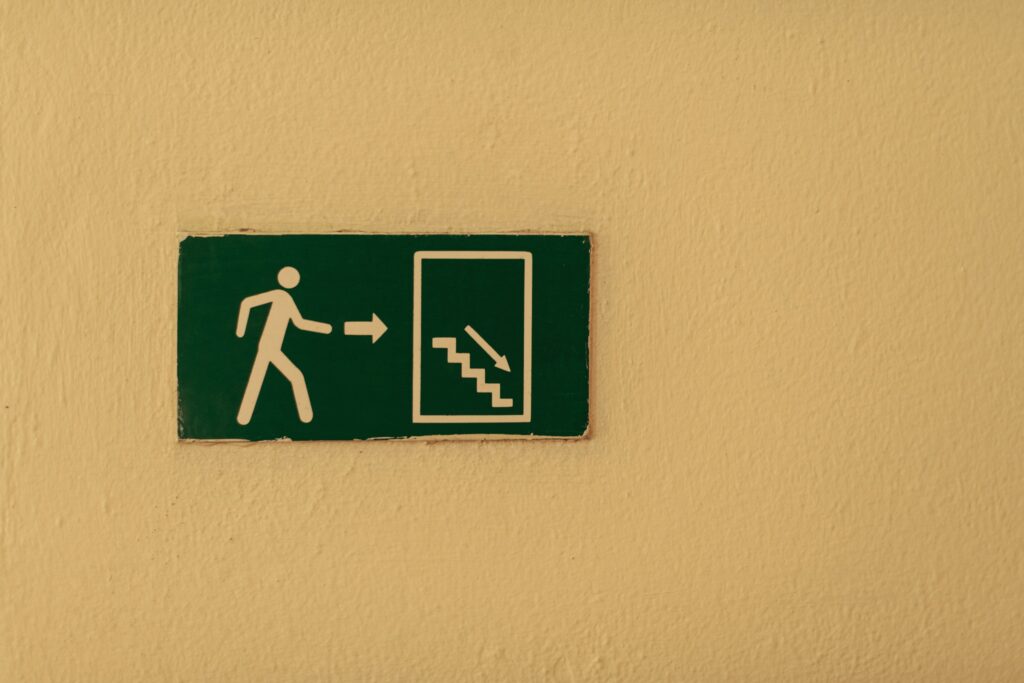
On Conscience, Legalism, Loving Your Brother, and the Fear of Man
Is it OK to go up the down staircase?
If it violates the spirit of the law, no it’s not. If it doesn’t, it’s fine.
But as I noted last time, when it doesn’t violate the spirit of the law, there are other things to consider.
Conscience
In 1 Corinthians 8, Paul deals with a Christian who thinks it’s wrong to eat meat that’s been sacrificed to idols. In the previous paragraph Paul has already said that there’s nothing wrong with eating the meat in itself. But this person is a new Christian, fresh out of idol worship, and to him that sacrificial meat carries baggage with it. (Now there’s an odd metaphor.) His conscience bothers him if he eats the meat.
Paul says, he must not eat the meat, and more mature Christians must not encourage him to eat it.
Why? Isn’t his conscience being unnecessarily narrow? Yes, it is. But his conscience doesn’t know that, and nobody ought to tell his own conscience to shut up. You want a conscience that speaks up, and one that knows it will be heard. If you tell your conscience to shut up enough times, eventually it will. And then you’re in serial killer territory.
So you’re at the bottom of the down staircase. It’s empty. The halls are quiet. Can you go up it?
Sure—provided your conscience doesn’t bother you about it.
Now, if you’re in an empty building, and you’re staring at the “Down” sign, and you look both ways down the hall, to make sure nobody’s watching, and you run up the stairs, pulse pounding, exhilarated that you’re getting away with something,
First, you’re one oddly troubled kid.
And second, yes, you’re sinning. God calls that rebellion, and he says it’s worse than witchcraft.
Oh, and one other thing …
Edification
Paul also says that you should refrain from doing things that might cause spiritual harm to your brother.
So here I am at the bottom of the down staircase. There are students around. I’m a teacher. A Bible teacher. (Actually, in a well-designed Christian liberal arts university, all the teachers are Bible teachers.)
Do I go up the down staircase, or do I walk a few extra steps to use the up staircase?
I don’t want to encourage my students to violate their own consciences, and I don’t want them to get the impression that regulations don’t matter.
So I walk the extra steps. Even if the down staircase is empty.
The principle of edification.
Now it’s at this point that somebody alleges, “Fear of man!”
Au contraire, mon frere.
I am not altering my behavior because I’m afraid of what they’ll think of me. God is my judge (that’s what my name means, actually), and I stand before only him, with Christ, my Advocate, at my side. Fearless, because Christ has given me promises, and I believe him.
I am altering my behavior because I love my students and want God’s best for them, including spiritual health. No fear in that. Perfect love casts out fear.
A closing thought.
Yeah, this is a tempest in a teapot. It’s a lot of obsessive thinking over a relatively trivial decision.
But that’s what I like about it. It gives us an opportunity to think through the biblical principles that should drive all our decisions, including the really big ones, and to do it in an environment that’s less complex, emotionally fraught, and consequential.
I hope it helps to clarify your thoughts on the matter.
Photo by Tim Mossholder on Unsplash

Leave a reply. Keep it clean.